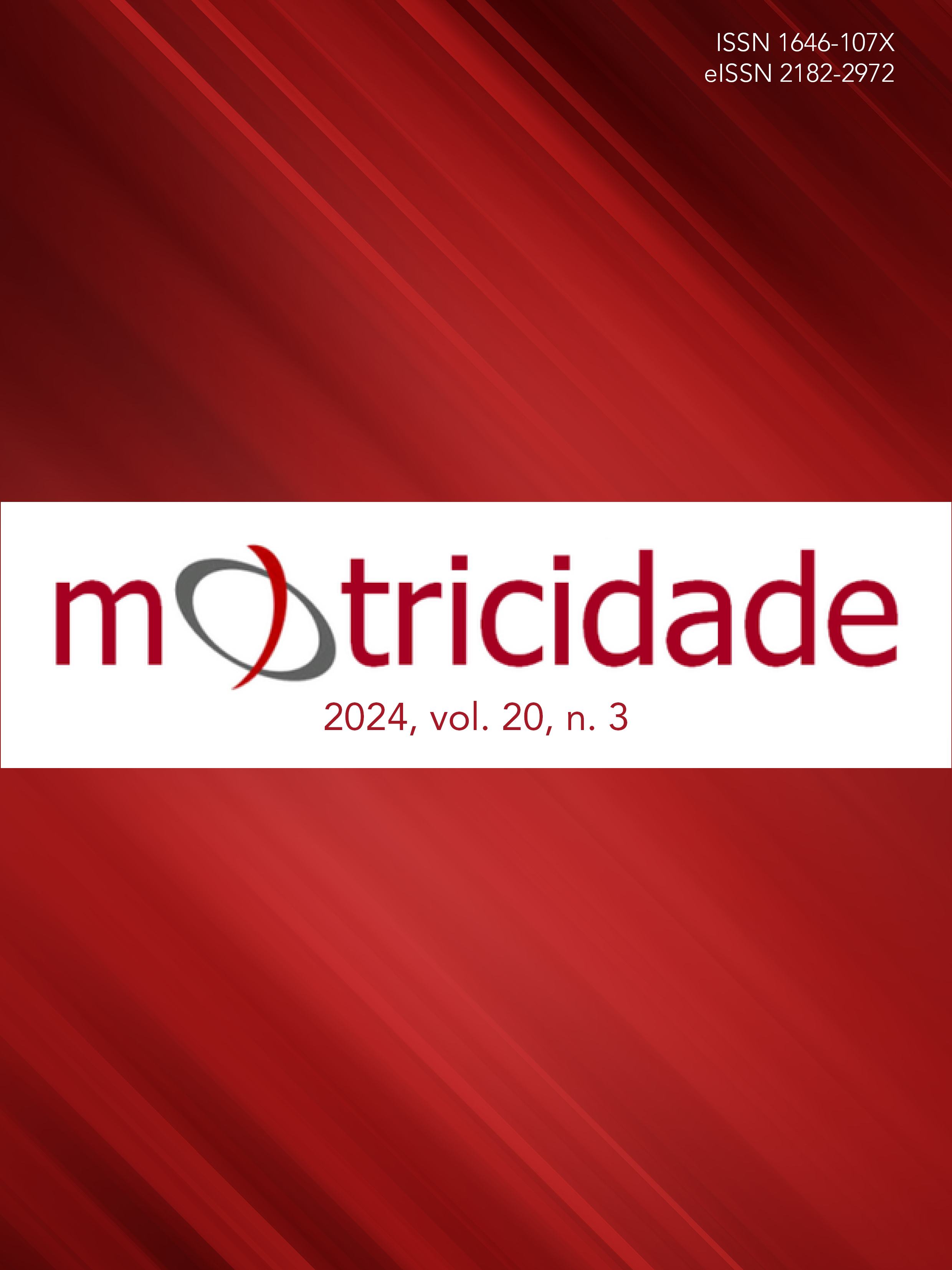Quality of life in adults and older adults survivors of COVID-19: a retrospective observational study
DOI:
https://doi.org/10.6063/motricidade.32888Keywords:
SARS-CoV-2, General Health Status, Aging, Body Mass IndexAbstract
The present study aimed to compare the quality of life on pre-diagnosis and post-recovery of people diagnosed with COVID-19 and examine the impact of its signals, symptoms, and clinical outcomes on quality of life in adults and older adults, considering sex, age groups, nutritional status, physical activity level, and family income as confounding variables. This retrospective observational study included 509 participants (39% male) ≥18 years old from a city in the northeastern region of São Paulo, Brazil, diagnosed with COVID-19 between March/2020 and February/2021. Participants were telephonically interviewed to provide information about COVID-19 infection, quality of life, and physical activity, considering the week pre-diagnosis and the week prior to the interview (post-recovery). Quality of life decreased in the post-COVID-19 recovery period compared to pre-diagnosis periods (Med = 5.6; Med = 3.4, respectively; Z = -19,589; p < 0.001). After controlling comparisons for age, sex, nutritional status, physical activity level, and family income, it was observed that the infection increased the frequency of respiratory distress (F = 3,956; [df = 1]; p = 0.047) and length of hospitalisation (≥ 6 days) (F = 6,538; [df = 1]; p = 0.011). COVID-19 infection induced worse respiratory distress and length of hospitalisation, compromising the survivors’ quality of life.
Downloads
Published
Issue
Section
License
The authors of submitted manuscripts must transfer the full copyright to Journal Motricidade / Sílabas Didáticas Editions. Granting copyright permission allows the publication and dissemination of the article in printed or electronic formats, and copyrights start at the moment the manuscript is accepted for publication. It also allows Journal Motricidade to use and commercialise the article in terms of licensing, lending or selling its content to indexation/abstracts databases and other entities.
According to the terms of the Creative Commons licence, authors may reproduce a reasonable number of copies for personal or professional purposes, but without any economic gain. SHERPA/RoMEO allows authors to post a final digital copy (post-printing version) of the article on their websites or on their institutions' scientific repository.


